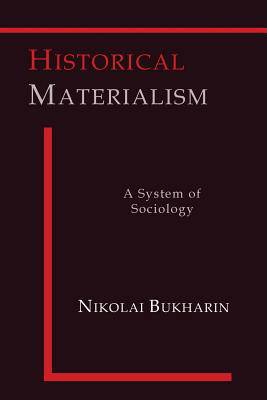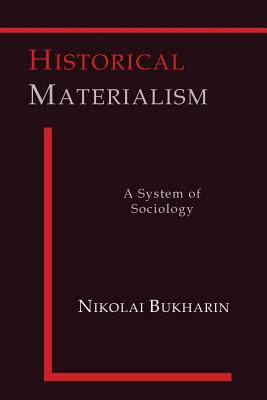
Bedankt voor het vertrouwen het afgelopen jaar! Om jou te bedanken bieden we GRATIS verzending (in België) aan op alles gedurende de hele maand januari.
- Afhalen na 1 uur in een winkel met voorraad
- In januari gratis thuislevering in België
- Ruim aanbod met 7 miljoen producten
Bedankt voor het vertrouwen het afgelopen jaar! Om jou te bedanken bieden we GRATIS verzending (in België) aan op alles gedurende de hele maand januari.
- Afhalen na 1 uur in een winkel met voorraad
- In januari gratis thuislevering in België
- Ruim aanbod met 7 miljoen producten
Zoeken
€ 22,45
+ 44 punten
Uitvoering
Omschrijving
2013 Reprint of 1925 English Edition from the Authorized Translation of the Third Russian Edition.. Exact facsimile of the original edition, not reproduced with Optical Recognition Software. Historical materialism is a methodological approach to the study of society, economics, and history first articulated by Karl Marx (1818-1883) as the materialist conception of history. It is a theory of socioeconomic development according to which changes in material conditions (technology and productive capacity) are the primary influence on how society and the economy are organized. Historical materialism looks for the causes of developments and changes in human society in the means by which humans collectively produce the necessities of life. Social classes and the relationship between them, plus the political structures and ways of thinking in society, are founded on and reflect contemporary economic activity. First published in English in 1925, this work by Nikolai Bukharin, a highly influential Marxist and Soviet Politician who would later become one of the most famous victims of Stalin's show trials, expands upon Karl Marx's theory of historical materialism.
Specificaties
Betrokkenen
- Auteur(s):
- Uitgeverij:
Inhoud
- Aantal bladzijden:
- 320
- Taal:
- Engels
Eigenschappen
- Productcode (EAN):
- 9781614275381
- Verschijningsdatum:
- 11/12/2013
- Uitvoering:
- Paperback
- Formaat:
- Trade paperback (VS)
- Afmetingen:
- 156 mm x 234 mm
- Gewicht:
- 494 g

Alleen bij Standaard Boekhandel
+ 44 punten op je klantenkaart van Standaard Boekhandel
Beoordelingen
We publiceren alleen reviews die voldoen aan de voorwaarden voor reviews. Bekijk onze voorwaarden voor reviews.









